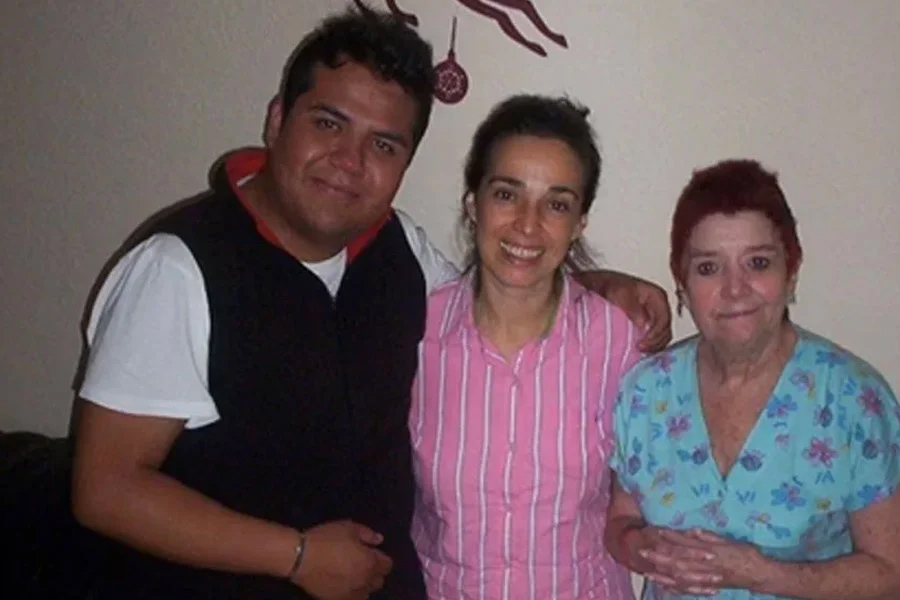Basic Information
| Field | Details |
|---|---|
| Full name | Ivette Eugenia “Goretti” Lipkies |
| Stage/credit name | Goretti Lipkies; Ivette “Goretti” Lipkies |
| Nationality | Mexican |
| Occupations | Actress, screenwriter, producer |
| Parent(s) | María Elena Velasco (“La India María”); Julián de Meriche (born Vladimir Lipkies) |
| Sibling(s) | Iván Lipkies (producer/director) |
| Heritage | Mexican; Russian ancestry via father |
| Active years | 1980s–present |
| Notable projects | El coyote emplumado (1983); Las delicias del poder (1999); Huapango (2004); La hija de Moctezuma (2014) |
| Primary genres | Comedy, family adventure, social satire |
| Languages | Spanish (primary) |
| Birthdate / birthplace | Not publicly disclosed |
| Social presence | Instagram: @gorettilipkies |
Family roots and early path
Goretti Lipkies grew up amid the pulse of cameras, choreography, and comedy—an environment where scripts were family conversations and sets felt like second homes. Her mother, the iconic María Elena Velasco, minted indelible images in Mexican film as “La India María,” a character whose wit and warmth echoed across generations. Her father, Julián de Meriche, born Vladimir Lipkies, arrived in Mexico with a dancer’s precision and a director’s eye, translating a Russian upbringing into a vibrant career as actor and choreographer. Together, they formed the foundation for a creative household.
From that lineage, Goretti’s artistic path feels less like a detour and more like a continuation—an inherited thread she’s braided into new work. Her brother Iván, a producer and director, often appears beside her in credits, a reminder that for the Lipkies-Velasco family, collaboration isn’t a strategy; it’s the family language.
Craft and collaborations
Goretti’s portfolio blends acting, screenwriting, and producing across feature films and shorts. The work tends to hover where comedy meets social commentary—stories that carry familiar rhythms while nudging audiences to look twice. In the mid-1980s, the family’s production activity coalesced around María Elena Velasco’s films, with Iván and Ivette (Goretti) contributing behind and in front of the camera. This framework enabled Goretti to pivot between duties: sometimes a performer tucked inside the narrative’s fabric, sometimes a writer sharpening the edges, and often a producer ensuring the whole enterprise holds together.
What distinguishes her trajectory is continuity. Rather than chase a scattered map of unrelated credits, Goretti has sustained a presence in projects connected to the “La India María” legacy while adding new short-form and festival-facing work in the 2000s and 2010s. It’s an ecosystem approach—family, tradition, and modern platforms sharing the screen.
Selected credits (expanded)
| Year | Title | Role | Notes |
|---|---|---|---|
| 1983 | El coyote emplumado (The Feathered Coyote) | Writing/creative | Tied to family-led production era and comedic adventure tradition |
| 1999 | Las delicias del poder | Acting/production involvement | Satirical flavor aligned with mother’s comedic hallmark |
| 2004 | Huapango | Actress | Directed by Iván Lipkies; Goretti appears in cast |
| 2014 | La hija de Moctezuma | Producer/crew | Late-career project linked to “La India María” legacy |
| 2020s | Amor Chiquito (short) | Collaborator/interview presence | Festival-linked short; featured in interviews and promos |
Dates matter because they reveal a cadence. From 1983 to the present, you can watch the beats of Goretti’s career: first, the family production era; then independent collaborations; later, legacy stewardship. That rhythm—steady, adaptable, faithful to her origins—turns a filmography into a quiet biography.
Presence in festivals and media
In recent years, Goretti’s name surfaces around shorts, interviews, and program notes. These appearances, often brief and in Spanish, feel like dispatches from a maker who keeps her focus on the work rather than the spotlight. Festival Q&As and promotional clips show her discussing process and intention—how a small film can carry a big heart, how collaboration translates to coherence. The social-media footprint is modest but visible; posts tend to mark festivals, anniversaries, and family-linked projects.
The legacy thread: working within the “La India María” mythos
Few film legacies in Mexico thread together humor, cultural satire, and working-class wisdom like “La India María.” Goretti’s contribution here is both practical and poetic. Practically, she helps produce and shape projects connected to her mother’s iconography, keeping scripts and sets organized while stewarding the brand’s integrity. Poetically, she participates in a tradition that balances laughter with observation—where a joke unlocks a truth, and a familiar character can outline the contours of social change.
Sustaining such a legacy is delicate work. It requires respect for the original voice and a willingness to adapt to shifting audiences. Goretti’s career shows that balance: a producer’s discipline, an actor’s empathy, and a writer’s awareness that stories age, but meanings evolve.
Timeline (condensed overview)
- 1960s–1970s: Family roots established—María Elena Velasco and Julián de Meriche work together in Mexican stage and film; their home becomes a crucible for creative children.
- Mid-1980s: A family-centered production era takes shape, with Iván and Ivette (Goretti) participating in the machinery of their mother’s films.
- 1983: El coyote emplumado marks a benchmark in the family’s comedic adventure cycle; Goretti connects in writing/creative capacity.
- 1999: Las delicias del poder reflects ongoing engagement with political satire in a cinematic format.
- 2004: Huapango features Goretti as an actress and cements brother-sister collaboration under Iván’s direction.
- 2014: La hija de Moctezuma ties the legacy forward, with Goretti active in production roles.
- 2020s: Short-form work and interviews—signals of continued activity and evolving platforms.
Style, themes, and impact
Goretti operates in that liminal zone where performance meets planning. As an actress, she has a grounded presence—attuned to ensemble work, ready to thread humor through a line. As a producer and writer, she keeps an eye on structure: budgets, beats, and the invisible scaffolding that lets a scene lift off. Her themes mirror the family’s—comedy with a conscience, everyday life with a touch of myth, satire as a mirror held steadily to the audience.
Think of her work as a well-tuned instrument in a band that’s played together for years. It’s not about virtuoso solos. It’s about the harmony—the trust that lets a creative family move in step, project to project, decade to decade.
FAQ
Who is Goretti Lipkies?
A Mexican actress, screenwriter, and producer, and one of the children of María Elena Velasco and Julián de Meriche.
She is the daughter of María Elena Velasco, the creator and star behind the iconic character “La India María.”
What are her notable projects?
Highlights include El coyote emplumado (1983), Las delicias del poder (1999), Huapango (2004), and La hija de Moctezuma (2014).
What roles does she typically take?
She works as an actress, writer, and producer, often within family-linked productions and comedic narratives.
Is her birthdate public?
No; her birthdate and birthplace are not publicly disclosed.
Does she have social media?
Yes; she maintains a modest presence on Instagram at @gorettilipkies.
What languages does she work in?
Primarily Spanish, reflecting her Mexican film and television context.
Is there public information on her net worth?
No; reliable public financial details are not available.
Has she appeared in interviews or festivals recently?
Yes; she appears in short interviews and festival-related clips tied to recent projects and shorts.
Who is her sibling in the industry?
Her brother, Iván Lipkies, is a producer/director and frequent collaborator.



